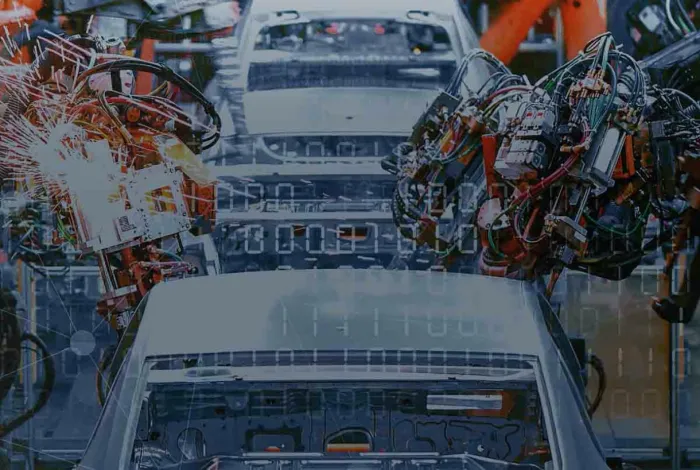

Now Available!
Get your copy of the 7th Annual State of Smart Manufacturing and hear from 300+ manufacturers in this new survey report!
Subscribe to Our Blog
For a monthly digest of expert insights, data points, and tips like the ones in this article.
Canada APMA 2019: Survival of the Fastest—and Most Adaptive
Manufacturing Operations Management (MOM)
I recently had the privilege of speaking at Canada’s Automotive Parts Manufacturer’s Association (APMA) Annual Conference and Exhibition in Windsor, Ontario and what struck me was the amount of change happening within this industry. One example of this is for the first, time conference organizers added an entire day to the schedule dedicated to technology.
Along with other challenges, like tariffs and a shortage of skilled workers, technology disruption is forcing Canadian manufacturers to look at the technology that supports their businesses. This is typically not an area they’ve been focused on, nor do they have the expertise to grapple with this issue—which is why conference organizers challenged keynote speakers to talk about how Canadian manufacturers can adapt to survive.
The Key to Handling Technology Disruption
At the heart of the disruption is Industry 4.0—a revolution fueled by the convergence of embedded and informational systems. Like the three industrial revolutions that came before, Industry 4.0 is an evolution within the manufacturing industry that takes advantage of new technologies. This evolution empowers organizations to connect machines to the cloud, manage the resulting data streams, and contextualize the information in real time across the entire operation.
The adoption of new technology does come with risk. Risk often born from the orchestration of individual use cases, which creates silos of information that make it difficult to scale over time. Canadian manufactures are no different. They must first build a foundation necessary to remain agile and adopt technology within the context of the entire business. To realize the power of this information across the entire organization, a connected, scalable, cloud-based platform is required to create a single repository accessible from anywhere.
Focus on Business Drivers
One pitfall manufacturers can easily fall into with technology disruption is allowing the technology to lead the way. It’s critical to remember that technology alone won’t create a more adaptive organization. There’s also people and processes that need to change. By focusing on business strategy, you can look at solutions more holistically. You probably want to minimize inventory on hand by reducing excess inventory, because that’s a significant capital expense. Minimizing the cost of quality, meeting customer demand and time-to-market are also critical business drivers for any modern manufacturer. Strategies like these bring technology disruption down to a practical level that is more tangible.
Long-Term Goal: Becoming More Adaptable
Once you’ve identified the business drivers and put a connected system in place, you have begun to automate processes and capture data during production. This is where your journey toward an adaptable, “smart factory” really starts. You’ve moved from manual, disconnected processes to becoming a nimble manufacturing organization able to see what’s happening on the shop floor. But it doesn’t stop there. Once you see what’s happening, you ask more questions. Questions that never occurred to you before. But since you’ve got the foundation in place, you can more easily adopt newer technologies that help you answer those questions like sensors, analytics, and dashboards. You can shift as you need to and iterate faster.
Learn more about how a cloud-based connected manufacturing platform can set your business up to be more agile. Download The Definitive Guide to Connected Manufacturing.

